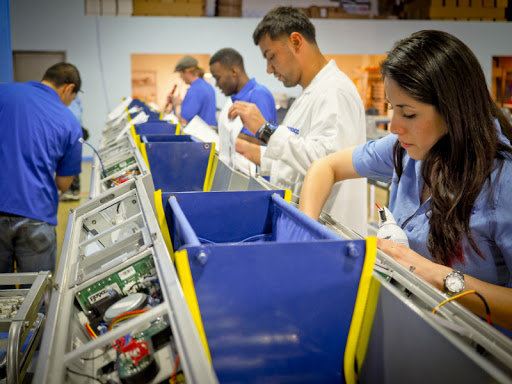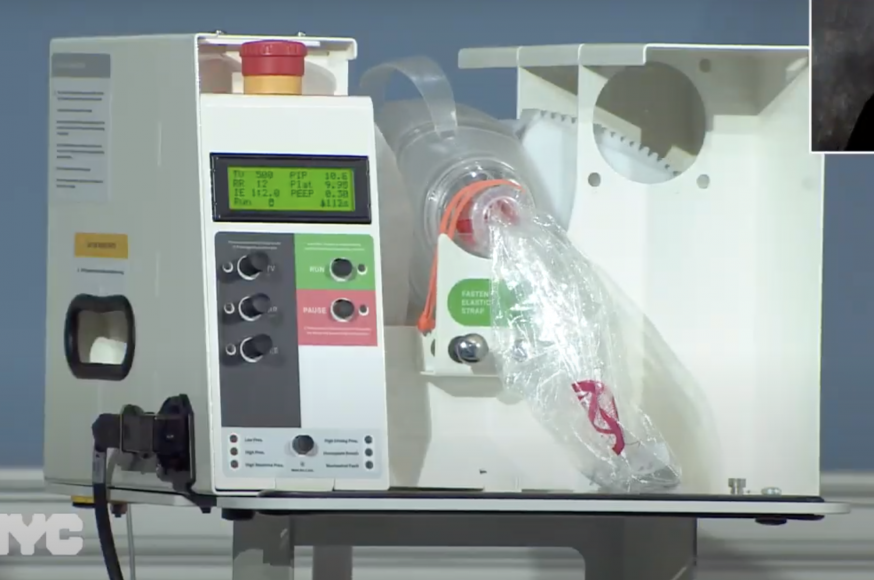
Photo: Boyce Technologies
April 21, 2020 By Allie Griffin
A Long Island City-based company is producing 3,000 “bridge” ventilators for New York City hospitals, Mayor Bill de Blasio announced today.
Boyce Technologies, a high-tech engineering manufacturer located at 47-22 Pearson Pl., is producing the machines that are being used to treat patients with less severe respiratory symptoms. Critically ill coronavirus patients will still need to be intubated with standard ventilators.
The bridge ventilators were developed by a team of New York engineers, physicians and experts in about a month — when such a development would normally take at least a year.
“This is New York City ingenuity at its best,” de Blasio said.
The innovation came together when the City feared it would run out of ventilators at the height of the coronavirus pandemic in early April — potentially costing thousands of lives. Approximately 220 more people were intubated each day at that point in New York City, de Blasio said.
The situation and need for ventilators has since eased and ICU rooms in city hospitals currently have enough of the life-saving machines, he said.
“But having gone through that terrifying moment I can tell you I am determined to make sure that New York City never ever is in a situation in the future where we need ventilators and we can’t get them,” de Blasio said.
The bridge ventilators will protect New Yorkers now and into the future, the mayor added.
“We are now increasingly self-sufficient.”
Two technology and product design experts in New York City put their heads together to look for a solution and worked with the City’s Economic Development Corporation to bring it to fruition.
Scott Cohen, co-founder of New Lab, and Marcel Botha, CEO of 10XBeta, led the effort and worked with Charles Boyce, president of Boyce Technologies, to develop the machines.
They collaborated with engineers and alumni from the Massachusetts Institute of Technology, where the original design was created in a classroom in 2010.
The machine prototype was developed further by a collaborative team of hundreds of people in the past few weeks until a final design was reached called the Spiro Wave.
On Friday, the Federal Drug Administration (FDA) approved the machines, which are significantly less expensive than standard ventilators — $3,333 versus upwards of $50,000, de Blasio said.

A ‘bridge’ ventilator produced in Long Island City (Mayor’s Office)
The City has paid $10 million to Boyce Technologies for the 3,000 bridge ventilators.
Now that the coronavirus situation is less dire than projected — and the need for ventilators has subdued somewhat — some of the Long Island City-produced machines will be put into a New York City reserve.
De Blasio announced today that the City is beginning the reserve program to become even more self-sufficient, noting that the federal government is unreliable.
“We have learned the hard way that we cannot depend on the federal government in the future,” de Blasio said.
New York City will protect itself with both production and a stockpile of face shields, surgical gowns, test kits and bridge ventilators, he added.
“We, New Yorkers, will take care of ourselves.”
De Blasio said that supplies in the reserve will also be sent out to other cities and states in need.
